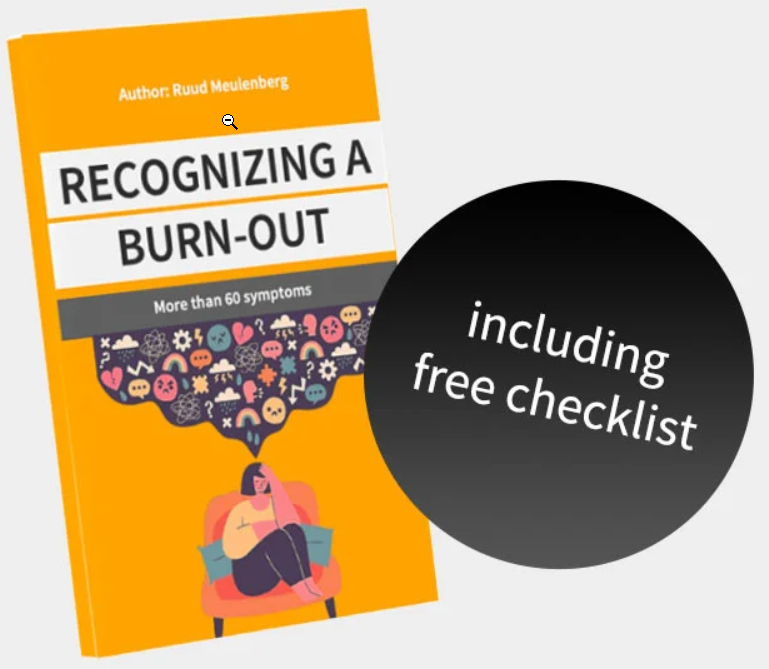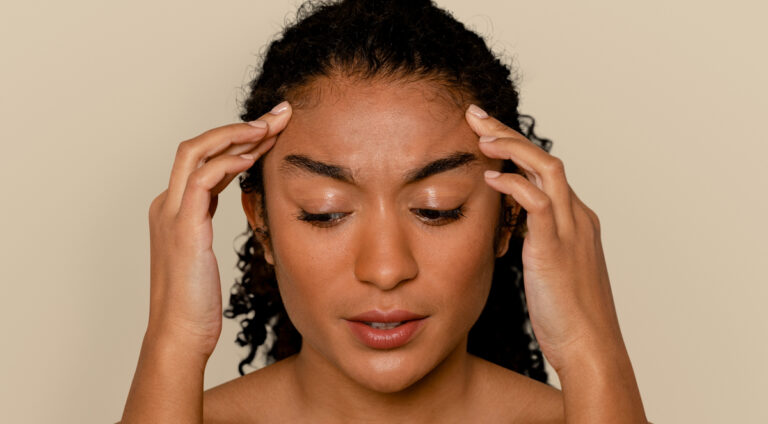Most people view stress negatively, linking it with feeling anxious and overwhelmed. However, stress is merely a mental and physical response to various stimuli, and not all stress is harmful. Indeed, there is a type of stress known as eustress, or good stress, which is motivating and beneficial. In this article, we will explore eustress, its benefits, how it can improve your life, and much more.
The Difference Between Eustress and Distress
Eustress and distress represent distinct types of stress situated on a spectrum. Distress, positioned at the negative end, typically involves negative feelings and an unpleasant experience. Conversely, eustress is a challenging yet rewarding form of stress found at the positive end.
Positive feelings may arise when confidently handling challenging situations, defining eustress. In contrast, distress can manifest when feeling overwhelmed or unable to cope. Distress is not inherently detrimental; sometimes, initial distress can inspire problem-solving, leading to improved outcomes.
Can we help you?
Leave us your information and one of our coaches will contact you in 24H

Examples of positive stress include invigorating workouts, rewarding work challenges, and self-initiated meaningful life changes. Conversely, distressing situations may involve intimidation, controlling behaviour, the loss of a loved one, or the end of a relationship.
Whether you experience eustress or distress in a given situation depends on your unique circumstances and perspective.
How Eustress Helps in Achieving Goals
Unlike distress, which negatively affects your well-being, eustress refers to positive stress that can propel you toward attaining your objectives.
Having good strain and positive feelings in your daily life can significantly benefit your professional and personal mindset. For example, eustress can help to harness the necessary motivation required to handle tasks and challenges, resulting in sustained effort in achieving your goals.
Good pressure can also help you act and stay focused on what you need to accomplish. This might involve stepping out of your comfort zone all while staying focused and motivated on the ultimate objective.
The Impact of Eustress on Mental Health
While distress negatively affects mental health, eustress has been shown to have a positive impact. When you experience good pressure, your brain releases hormones such as adrenaline and cortisol, which help you feel alert, focused, and energised. This leads to several mental health benefits that include the following:
Improved Resilience
Eustress can help boost resilience or your ability to cope with adversity. Whenever you face and overcome challenges, developing confidence and self-efficacy becomes a norm that can help you manage future obstacles effortlessly.
Better Cognitive Function
It can improve cognitive function, including attention, memory, and decision-making. You can easily absorb and process information when you feel focused and motivated.
Increased Self-Esteem
Good anxiety has been shown to help improve self-esteem and overall well-being. You are more likely to exude positive emotions like pride, joy, excitement, and high self-esteem whenever you feel inspired and challenged.
Enhanced Creativity
Positive feelings have been associated with increased creativity, as they can help you approach problems and situations with a fresh perspective. When you are in a state of good distress, you may be more open to new ideas and ways of thinking.
How Eustress Impacts the Physical Self
When you experience good pressure, your body releases adrenaline and cortisol, which prepare you for action. These hormones can have several physical effects including:
Increased Heart Rate and Blood Pressure
Adrenaline can increase your heart rate and blood pressure, which results in an increased supply of oxygen and nutrients to your muscles and brain.
Improved Immune System
Chronic stress decreases the immune system, making you more susceptible to illness and infections. However, good anxiety may have the opposite effect, as it can help to stimulate the immune system and improve your ability to fight off diseases.

Increased Blood Sugar Levels and Oxygen Intake
Cortisol hormone can increase your blood sugar levels, which provides extra energy to your muscles and brain. A positive feeling can also increase oxygen intake, improving lung capacity and respiratory health.
Reduced Inflammation
Good distress has been shown to reduce inflammation, which is linked to several chronic health conditions like heart disease, diabetes, and arthritis.
Improved Sleep
Good pressure can also improve your sleep quality, as it helps to regulate the body’s stress response system. The good distress you experience during the day can help you relax and unwind at night, improving sleep.
Increased Physical Activity
Lastly, it can increase your physical activity. When you feel energised and motivated, you may be more likely to exercise regularly, which in itself can have several physical health benefits.
Common Sources of Eustress
When it comes to eustress, understanding its sources can be beneficial to utilise it effectively. Anxiety can differ for every person due to individual variations in response to stressors. Nevertheless, there are common eustress sources that apply to people at different stages of life, and they include the following:
Temporary Circumstances
These circumstances can raise pressure levels momentarily and can also be exhilarating, as you know they will not last forever. Examples of such events include short trips and holidays.
Witnessing Progress
As you work hard to achieve life-long aspirations or even major daily tasks, you can become motivated to continue when you notice progress signs. This feeling drives you to keep going until you are close to completion and success is within arm’s reach.

Download our
free e-book
Recognizing a burnout
(more than 60 symptoms)
Impending Changes
Before commencing a new job or relocating to another city, you might anticipate the change that awaits you by feeling pressured. However, excitement can induce good anxiety, which helps you adapt when the time arrives.
Stepping Out of Your Comfort Zone
It is common to gain knowledge whenever you step out of your comfort zone. Although this feeling entails taking risks, it demonstrates how exploring new things is positively worthwhile and worth trying on a frequent basis.
Other good anxiety sources include marriage, starting a new romantic relationship, buying a house, having children, working out, retiring, learning a new hobby, and affording to buy a costly item.
Tips to Build Eustress into Daily Life
It is likely that you already have positive stress in your life. However, if you wish to integrate good anxiety into your daily routine, here are helpful tips to get you started.
Set Meaningful Goals
Setting specific, challenging, and achievable goals can help you build positive feelings every day. The goals should be meaningful and align with your values, interests, and aspirations. It also helps to break them down into smaller milestones that you can achieve daily or weekly.
Exercise Regularly
Working out is an excellent way to build good stress into your daily routine. It releases endorphins [1], also known as the “feel-good” hormones, to help decrease stress, anxiety, and depression. Look out for an enjoyable physical activity and make it a part of your daily life.
Try New Things
Trying new things and exploring different experiences can induce eustress in your daily routine. Try something as simple as trying a new cuisine, visiting a new place, or learning a new skill. The key is to step out of your comfort zone and embrace the unknown.
Embrace New Challenges
Embracing challenges and viewing them as growth prospects can bring great feelings to your daily life. So, tackling complex tasks with a positive mindset and a growth-oriented attitude would be helpful instead of avoiding complex tasks.
Connect with New People
Positive social interactions can introduce and improve your mental well-being. Make time to connect with friends, family, or colleagues, whether it’s through face-to-face conversations, phone calls, or virtual meetings.
Where to Get Help with Stress Management
We’ve observed that individuals can generate positive pressure on their own. However, for some, dealing with negative pressure may require assistance. Fortunately, numerous sources of support are available.
You should consult your doctor or alternative health providers such as a stress coach, counsellor, or therapist regarding anxious feelings. An experienced medic can guide treatment and refer you for additional assistance. They may recommend cognitive behavioural therapy (CBT), brief interpersonal counselling, or even mindfulness-based approaches to pressure reduction. If you are experiencing burnout due to stress, seeking professional help (doctor or stress coach specifically) without feeling like a failure is essential.
Additionally, if your workplace offers an Employee Assistance Scheme, you could contact them for confidential support or counselling.
Conclusion: How Can I View Stress as a Positive Thing?
You can view stress as a positive thing by recognizing that it can be a normal and necessary response to challenging situations, reframing it as challenges or growth stress, focusing on its benefits, and developing healthy coping strategies and self-care practices.
In summary, eustress is a powerful force with mental and physical benefits. By understanding how it affects the physical self, you can cultivate more of this positive form of stress and reap the rewards of improved physical health and well-being.
Stress & burnout coaching; for 100% recovery!
Reducing stress and recovering from burnout is simply incredibly difficult. The coaches at Meulenberg Training & Coaching understand exactly what you are going through and know how tough it can be. They have often experienced it themselves! With their years of experience and expertise, they are ready to help you step by step toward a full recovery. The results of our one-on-one coaching and absenteeism training will benefit you for a lifetime!
FAQ
References
- Wikipedia.org – Endorfine – Found on 24/06/2024
Link to the page on wikipedia.org






